On January 7, 2024 / News
 In this study, we used radiotelemetry and translocations to track microbiome composition and function, pathogen infection, and host stress over time across natural movement paths for the forest-associated treefrog, Boana faber. We found strong integration of host stress response and anti-pathogen potential of the microbiome. Additionally, we observed a capacity for resilience (resistance to structural change and functional loss) in the amphibian skin microbiome, with maintenance of putative pathogen-inhibitory function despite major temporal shifts in microbiome composition.
In this study, we used radiotelemetry and translocations to track microbiome composition and function, pathogen infection, and host stress over time across natural movement paths for the forest-associated treefrog, Boana faber. We found strong integration of host stress response and anti-pathogen potential of the microbiome. Additionally, we observed a capacity for resilience (resistance to structural change and functional loss) in the amphibian skin microbiome, with maintenance of putative pathogen-inhibitory function despite major temporal shifts in microbiome composition.
Neely WJ, Martins RA, Mendonça da Silva CM, Ferreira da Silva T, Fleck LE, Whetstone RD, Woodhams DC, Cook WH, Prist PR, Valiati VH, Greenspan SE, Tozetti AM, Earley RL, Becker CG. 2023. Linking microbiome and stress hormone responses in wild tropical treefrogs across continuous and fragmented forests. Communications Biology, 6(1):1261. doi: 10.1038/s42003-023-05600-9.
Read this article.

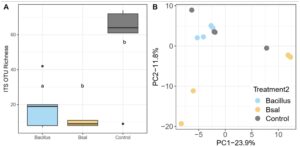
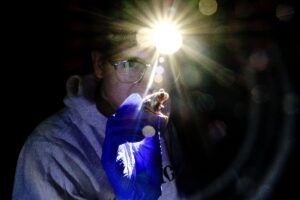
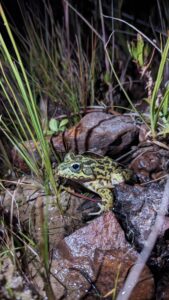
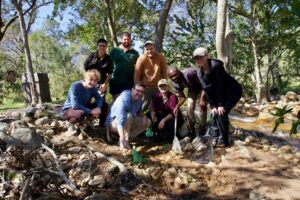
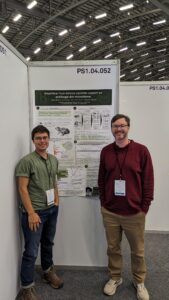

 In this study, we used radiotelemetry and translocations to track microbiome composition and function, pathogen infection, and host stress over time across natural movement paths for the forest-associated treefrog, Boana faber. We found strong integration of host stress response and anti-pathogen potential of the microbiome. Additionally, we observed a capacity for resilience (resistance to structural change and functional loss) in the amphibian skin microbiome, with maintenance of putative pathogen-inhibitory function despite major temporal shifts in microbiome composition.
In this study, we used radiotelemetry and translocations to track microbiome composition and function, pathogen infection, and host stress over time across natural movement paths for the forest-associated treefrog, Boana faber. We found strong integration of host stress response and anti-pathogen potential of the microbiome. Additionally, we observed a capacity for resilience (resistance to structural change and functional loss) in the amphibian skin microbiome, with maintenance of putative pathogen-inhibitory function despite major temporal shifts in microbiome composition.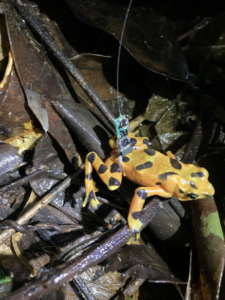
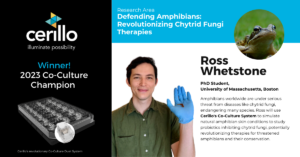 I am thrilled to share that our entry has been chosen as one of the nine winners of Cerillo’s 2023 Co-Culture Champion Contest. This recognition is incredibly meaningful, especially considering there was a diverse array of entries from around the globe. We’re looking forward to using Cerillo’s Co-Culture Duet System to simulate natural amphibian skin conditions to potentially revolutionize therapies for threatened amphibians and their conservation. You can learn more about our winning entry here:
I am thrilled to share that our entry has been chosen as one of the nine winners of Cerillo’s 2023 Co-Culture Champion Contest. This recognition is incredibly meaningful, especially considering there was a diverse array of entries from around the globe. We’re looking forward to using Cerillo’s Co-Culture Duet System to simulate natural amphibian skin conditions to potentially revolutionize therapies for threatened amphibians and their conservation. You can learn more about our winning entry here: